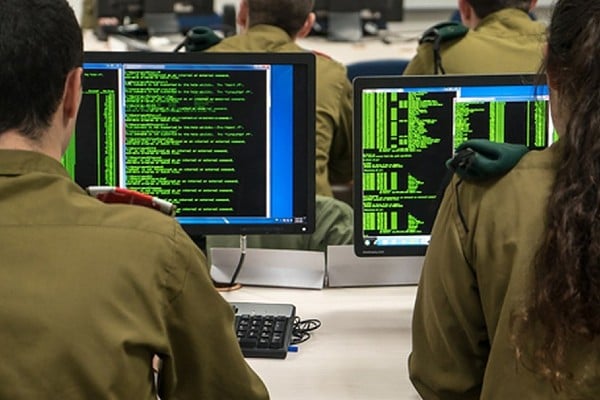A former senior army intelligence official said that if it had been working, “dramatic information” would have “very likely changed the intelligence picture.”
By Batya Jerenberg, World Israel News
A key intelligence system went down the night before the Hamas attack on October 7th that might have given the IDF time to prevent it had it been working, Channel 12 reported Saturday.
The system, whose details are top secret, experienced a serious fault at 11:00 p.m. on October 6th that required it to be shut down by its Unit 8200 operators.
This was a critical time, as a few warning signs, such as the simultaneous flipping on of hundreds of Israeli SIM cards in mobile phones belonging to Hamas fighters, had led to discussions that night among the top brass in the IDF, with Shabak head Ronen Bar sending a very limited but elite force to the Gazan border.
The report cited conflicting views over when a repair crew was summoned. A senior military intelligence official said they were sent immediately, while another intelligence source told the media outlet that the experts only arrived after 3 a.m.
In any event, the system was up and running by 5 a.m., an hour and a half before the terrorists crashed through the Gazan border fence in nearly 30 places, flew over it in paragliders, and penetrated Israel via the sea, on their way to massacre 1,200, wound thousands, and take 252 people hostage.
This was not enough time, however, for the system to reconstruct the data from the hours it was down, and retrieve vital real-time information before the attack commenced.
According to Channel 12, in internal IDF investigations of the surprise assault, Unit 8200’s commander said that a report of the system’s serious problem was sent to IDF Intelligence head Aharon Haliva, Chief-of-Staff Herzi Halevi and Shabak chief Ronen Bar.
A senior intelligence official counterclaimed that he received no report of the system’s shutdown.
“If the system had been working in those hours, it would have been very likely that dramatic information would have arrived to change the intelligence picture,” a former senior army intelligence source told the outlet.
“There were the Israeli SIM-cards turned on in Gaza, telltale signs, but there was no supportive intelligence. If the system is working and nothing is coming from it, it weakens the suspicion of an invasion plan. But the system wasn’t working, so the Intelligence assumptions should have leaned toward a graver assessment [of the situation],” the source charged.
The report said that the contradictory statements lead to such questions as whether the army and intelligence heads did or didn’t know that such an important system wasn’t working during those critical hours, and whether they took it into account in the decisions they made.
In response to the report, which Channel 12 pointed out had passed the inspection of the army censor, the IDF Spokesman put out a statement saying, “The IDF is in the midst of process of investigating the events of October 7th and the preceding circumstances.
“The claims presented in the report are being examined as part of the investigations. Upon completion, the findings will be transparently presented to the public.”


